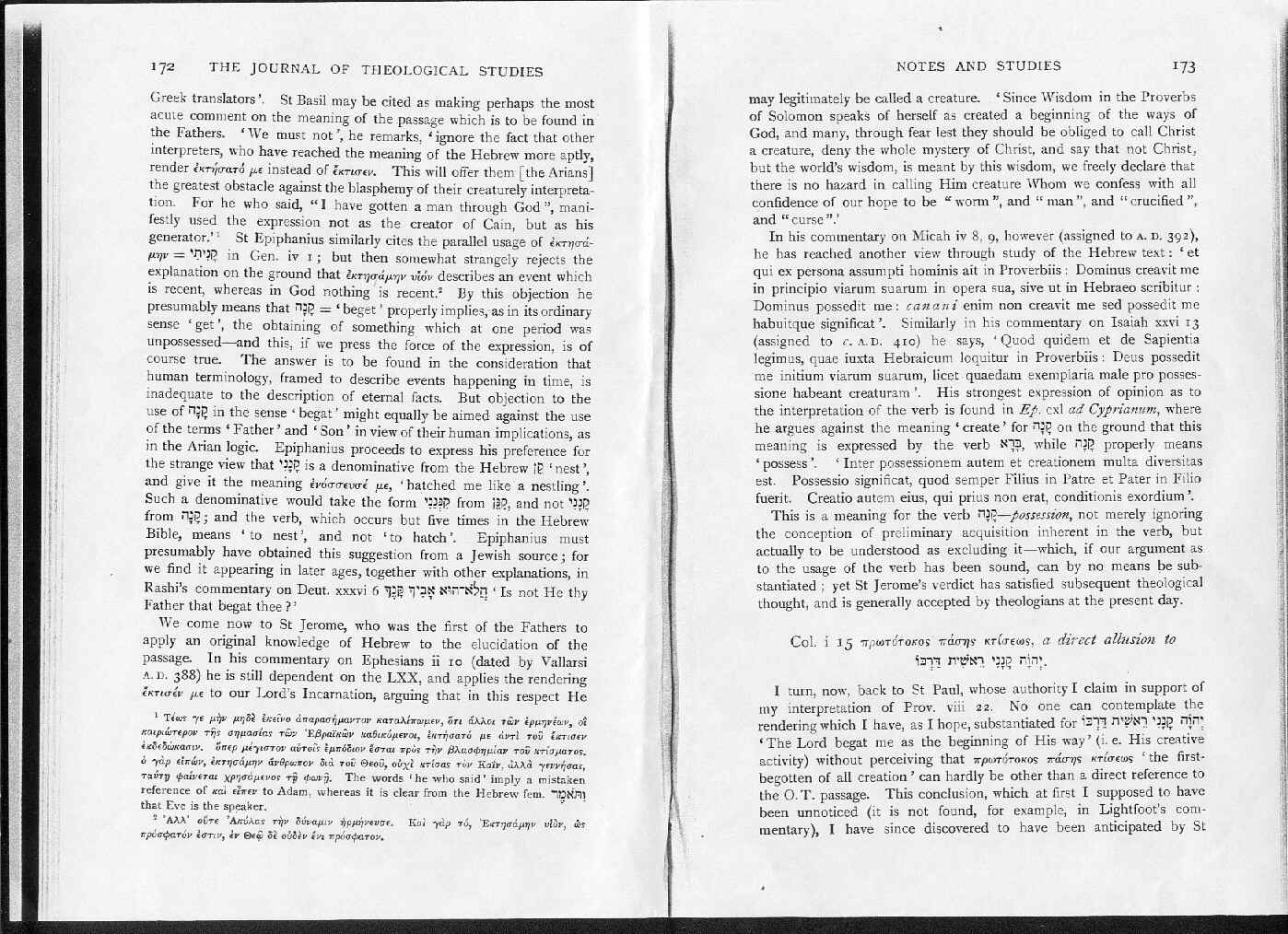
N.B. A translation of Jerome's Latin(on p.173), with accompanying notes, can be found below these pages.

(1) et qui ex persona assumpti hominis ait in Proverbiis: Dominus creavit me in principio viarum suarum in opera sua, sive ut in Hebraeo scribitur: Dominus possedit me: canani enim non creavit me sed possedit me habuitque significat.
Translation: "And who from the person of the (having been) assumed man (i.e., human being) says in Proverbs*1: 'The Lord created me in the beginning of His (own) ways among His (own) works *2, or as it is written in Hebrew: 'The Lord possessed me: For CANANI signifies not created me but possessed and had me."
(2) Quod quidem et de Sapientia legimus, quae iuxta Hebraicum loquitur in Proverbiis: Deus possessdit me initium viarum suarum, licet quaedam exemplaria male pro possessione habeant creaturam.
Translation: "Indeed concerning Wisdom, who (according to Hebrew) speaks in Proverbs, we read: 'God possessed me as the beginning of His (own) ways,' although certain copies inferiorly have (i.e., read) 'creature' for 'possession.'"*3
(3) Inter possessionem autem et creationem multa diversitas est. Possessio significat, quod semper filius in patre et pater in filio fuerit. Creatio autem eius, qui prius non erat, conditionis exordium.
Translation: "But among the possession and (or) creation, there is much diversity. It [QANAH] signifies possession, because the Son always existed (lived) in the Father and the Father in the Son. But His creation, which previously was not (i.e., did not hitherto exist), is the beginning of His work."
______________________________________________________
1. Assumpti is a perfect participle passive construed with the genitival form of HOMO. HOMO can mean "human being, person, man." In this case, it refers to the "Incarnate Christ." I have used "assumed" to reflect the theological character of Jerome's construction EX PERSONA ASSUMPTI HOMINIS.
2. SUARUM, in this context, is literally "His own." I have bracketed "own" since I felt it not all that necessary when conveying the idiomatic English sense of SUARUM and SUA.
3. MALE is an adverbial literally meaning "poorly." In order to get the point across in English, however, I have rendered the construction "inferiorly."
Edgar Foster
University of Glasgow
Ph.D. Candidate